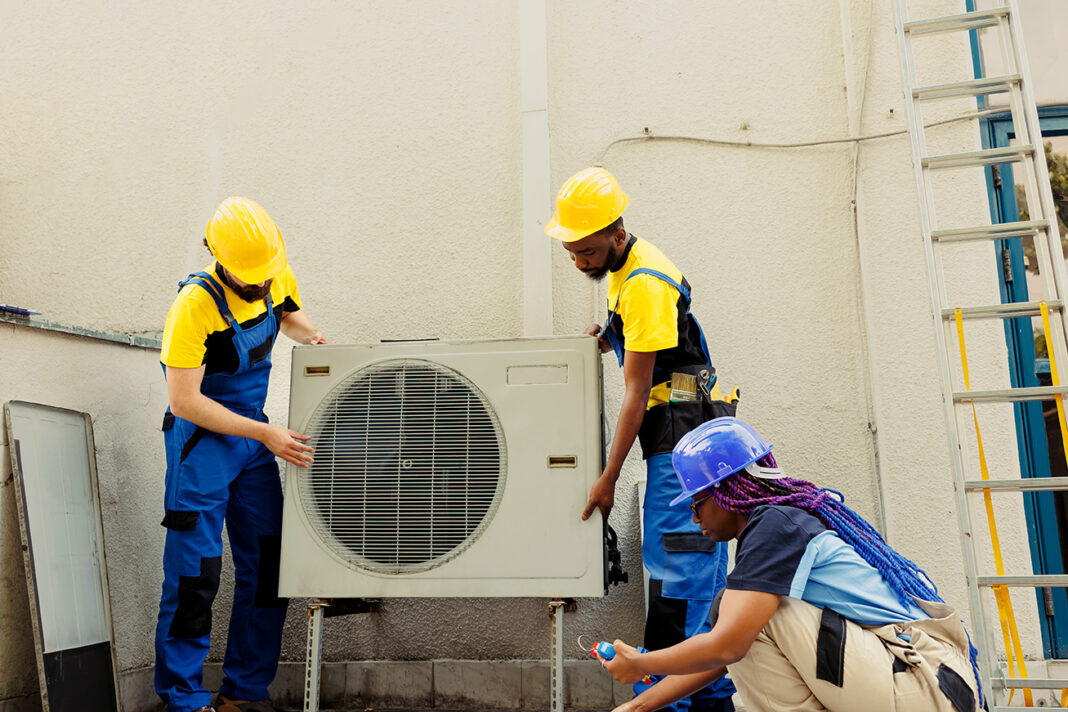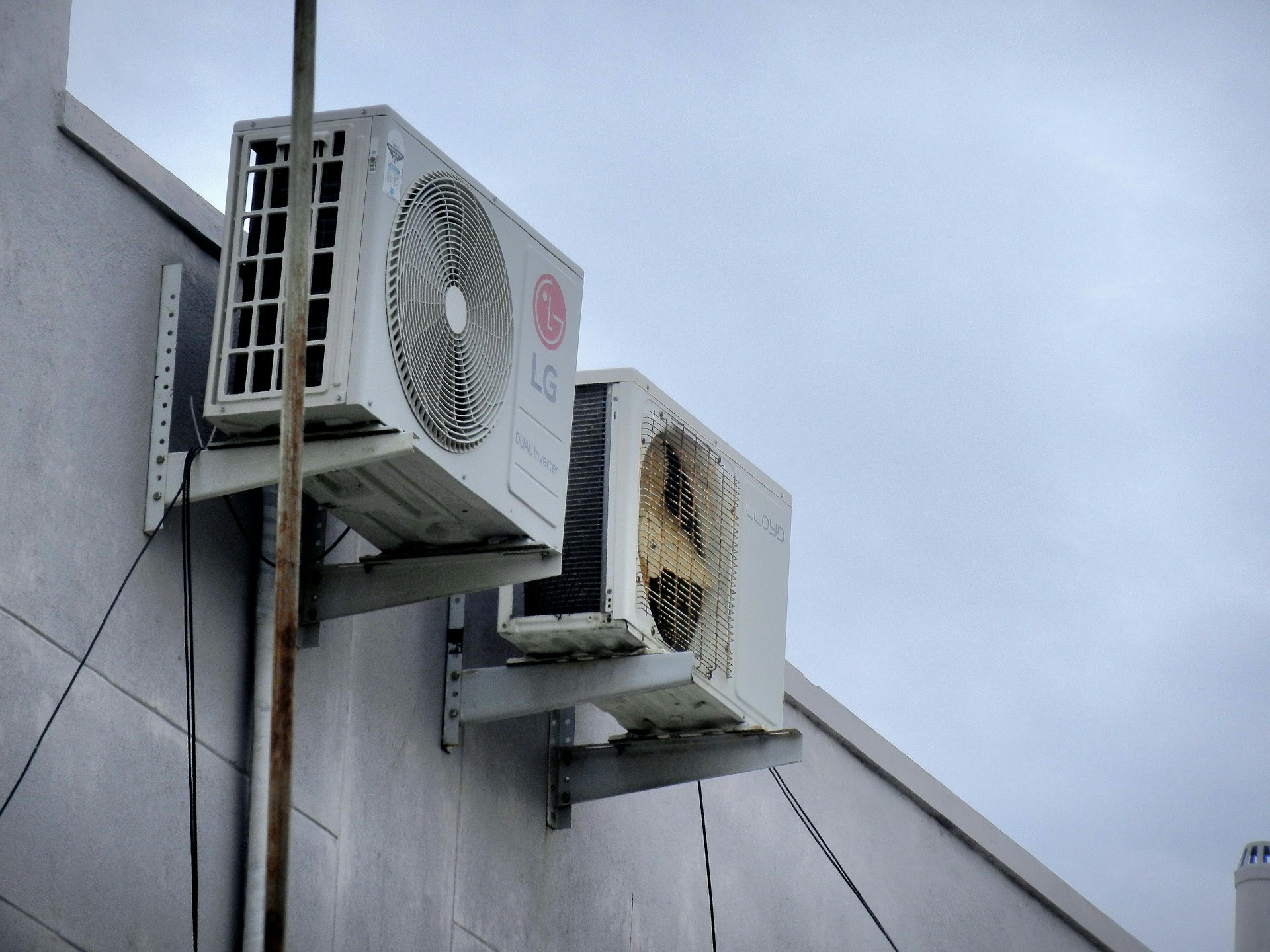Air conditioning systems maintain comfort and air quality in luxury homes. Even with high-end systems, issues can arise that undermine their efficiency and effectiveness. Identifying common problems can prevent serious failures so that these systems continue to perform optimally. Let’s explore the typical air conditioning issues faced by luxury homeowners and offer solutions to maintain comfort throughout the year.
Insufficient Cooling in Large Spaces
The most common complaint among luxury homeowners is insufficient cooling. When air conditioning systems struggle to cool large spaces, it can lead to uncomfortable living environments. The primary reason for this problem lies in the size and capacity of the air conditioning unit. A unit that is too small for the space cannot circulate cool air, leading to hot spots and a lack of comfort.
Improper ductwork can contribute to air distribution issues. If ducts are not adequately designed or installed, they can cause air to be unevenly distributed through different areas of the home. Regular inspections and AC maintenance plans can identify these problems before they become issues. Zoning systems allow homeowners to control the temperature in different areas individually, improving comfort and efficiency. Upgrading to a more powerful unit or optimizing existing systems can improve performance and comfort levels.
Frequent System Cycling
Homeowners may encounter frequent system cycling, where the air conditioning unit turns on and off repeatedly. This undesired behavior can result in increased energy costs and premature wear and tear on the system. In most cases, the cause of this issue is the thermostat settings and their placement. If a thermostat is not calibrated properly or placed in an area that does not reflect the temperature of the space, it can cause the system to react incorrectly.
Dirty air filters can worsen this problem by reducing airflow, causing the system to work harder than necessary. Homeowners should regularly check and replace filters for proper airflow and efficiency. The system should be appropriately sized for the home’s needs and prevent frequent cycling. Regular maintenance and assessments should include a check of the thermostat and system for optimal performance. Investing in programmable thermostats can optimize cooling times based on individual schedules.
Refrigerant Leaks and Low Refrigerant Levels
In air conditioning systems, refrigerant can cool processes, and low levels can cause insufficient cooling and increased energy usage. A major indication of potential refrigerant issues is inconsistent temperatures throughout the home. If one area feels cooler than another, it may signal a leak or low refrigerant levels. Leaking refrigerant affects cooling efficiency and leads to system failures if not addressed on time.
Homeowners should be aware of the signs of refrigerant leaks, which include hissing or bubbling noises and ice formation on the coils. If these signs occur, call a professional technician to identify and repair the leak. Ignoring refrigerant issues can have serious consequences, including costly repairs or complete system failure. Adopting an annual maintenance schedule will detect refrigerant problems early.
Inadequate Airflow
Inadequate airflow can dramatically affect home comfort. Factors contributing to airflow problems include blocked vents, dirty filters, or issues with the ductwork itself. Blocked or closed vents prevent conditioned air from circulating properly. Regularly checking and clearing vents can help check if the air is flowing freely throughout the home. Clogged filters can restrict airflow, forcing the system to work harder and possibly leading to mechanical failures.
Improperly sized or poorly installed ductwork contributes to airflow issues. Plumbing professionals can perform diagnostics to identify ductwork problems that limit airflow efficiency. Proper adjustments, repairs, or even complete rewiring may be necessary to restore airflow and comfort.
Unpleasant Odors from the AC Unit
Luxury homes should provide a comfortable and pleasant indoor environment, but foul odors from air conditioning units can be an annoyance. A musty or mildew-like smell can indicate mold or bacterial growth within the system. This problem may arise due to the accumulation of moisture in the evaporator coils or ducts. Stagnant water can create a breeding ground for mold and compromise indoor air quality.
Other smells may indicate electrical issues or overheating components, which can pose serious safety risks if not addressed promptly. Homeowners should regularly schedule inspections and cleanings to mitigate unpleasant odors so that the system is functioning properly. Air purification systems can filter out contaminants and improve home comfort with better air quality. Cleanliness in the system can lead to fresher air and a more enjoyable living environment.
Frozen Evaporator Coils
Frozen evaporator coils can indicate a problem with the air conditioning system. When coils freeze, airflow is obstructed, reducing the unit’s efficiency and leading to potential compressor damage. Low refrigerant levels can result in freezing, as can insufficient airflow caused by dirty filters or blocked ducts. Homeowners need to monitor their systems and take prompt action if they notice signs of freezing. Upon discovering frozen coils, the best course of action is to turn off the system and allow it to defrost completely.
Once defrosted, investigating the cause prevents recurrence. Checking filter conditions and maintaining proper refrigerant levels can be the best preventive measures. Regular maintenance checks can detect issues before they lead to significant complications, preserving the longevity and efficiency of the air conditioning system.
Common Sound Issues from the Unit
Unusual sounds coming from an air conditioning unit can signal underlying problems that require attention. Grinding, squealing, or clanging can all indicate mechanical failures within the system, including worn-out or damaged parts. Homeowners must not ignore these sounds, as they can lead to further damage and costly repairs if left unaddressed. Regular maintenance can prevent mechanical issues and prolong the life of the air conditioning system. Homeowners should schedule annual checks to inspect noises and system performance.
Technicians can identify problems during routine maintenance, allowing for early repairs and less extensive costs. Homeowners can avoid complications so that their luxury home’s air conditioning system operates smoothly and efficiently.
Luxury homes come with high expectations for comfort, and air conditioning is a necessary component in achieving that comfort. Addressing common problems can save homeowners time, money, and discomfort in the long run. Regular maintenance, immediate repairs, and attention to system performance can improve the experience of living in a luxury home.








